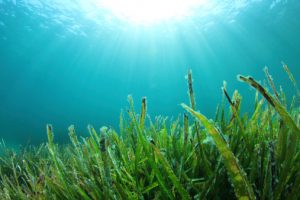
However, most sunscreen products used today contain synthetic UV radiation filters which run the risk of making their way into water systems, possibly harming fragile marine life including coral, fish, and microorganisms.
According to the European Chemicals Agency and The Environmental Effects Assessment Panel (EEAP), eight of the 16 commonly used sunscreens in Europe have eco-toxic effects.
An environmental friendly substitute
An alternative to synthetically formulated sunscreen has recently been discovered, as a compound known as mycosporine-like amino acid (MAA), found in seaweed, protects human skin from the damaging impact of the sun.
This natural compound, also known as palythine, has the ability to protect against UV radiation in human skin cells.
Seaweed is commonly found to live in sunlight-rich environments that have most likely allowed it to develop this ability to manage UV rays.
In lab studies using human skin cells, this compound was not only able to absorb harm sun rays but also proved to be a powerful antioxidant that could potentially protect against cellular damage and premature again caused by excessive sun exposure.
“MAAs, in addition to their environmental benefits, appear to be multifunctional photoprotective compounds. They work through the direct absorption of UVR photons, much like the synthetic filters. They also act as potent antioxidants, which is an important property as exposure to solar radiation induces high levels of oxidative stress and this is something not seen in synthetic filters,” said lead author Dr. Karl Lawrence from St John’s Institute of Dermatology.
Protecting our skin while protecting the environment
Protection from the sun is very important to protect from skin damage, but current methods of doing so can have a negative impact on our environment. Marine-derived sunscreens, such as the one currently being studied, can not only provide sun protection but do so while not harming precious marine wildlife and habitats.
This discovery could be the beginnings of an eco-compatible, non-toxic, natural sunscreen. However, more research would be required to prove its effectiveness outside of a laboratory setting.
Related: Sun safety tips for all ages
[adstoappear]